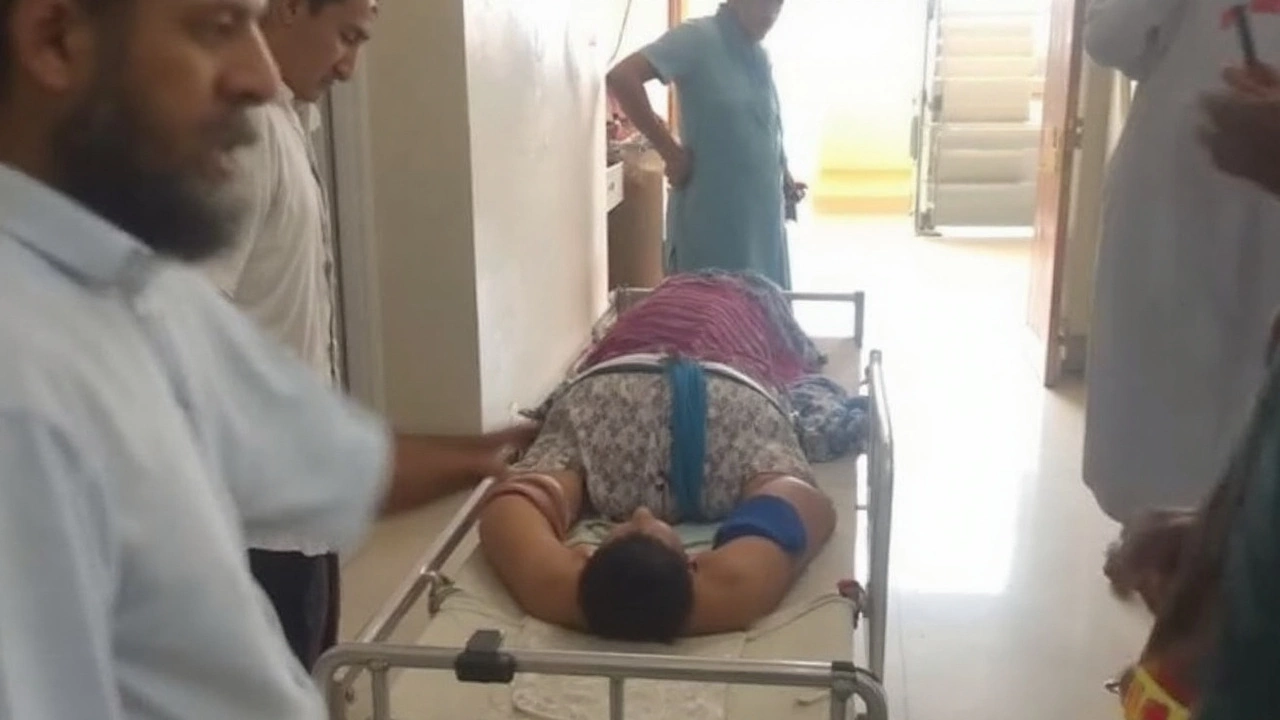Pickup Truck Overturns Carrying Laborers Returning from Paddy Planting in Madhya Pradesh

Overloaded Pickup Overturns After Paddy Work, Leaving Many Injured
A routine day of paddy planting in Madhya Pradesh ended in chaos when a pickup truck filled with laborers flipped on its way back to their village. Around 12 to 15 workers, squeezed onto the vehicle after a long day's toil in the fields, were hoping for a quick trip home. Instead, the bumpy journey turned disastrous, with the pickup losing control and overturning—leaving several people injured and at least two, including a woman and a man, in serious condition.
Paddy season always brings a rush for temporary labor. Trucks and pickups end up carrying far more than they're designed for, as workers move between rural fields and villages. Those laborers work hard, sometimes spending hours knee-deep in muddy water under harsh sun and sudden downpours, eager to earn enough to get by. But transportation after work is rarely safe. In this situation, the truck was jammed full—likely with bags and equipment piled in alongside exhausted people. It's a common sight during this season: people clustered tightly on open-back vehicles, each hoping nothing goes wrong on the shaky rural roads.
Poor Road Safety and the Risks for Returning Laborers
Authorities haven’t released all the details yet, but early reports suggest the driver may have lost control on a rough patch or failed to navigate a curve. Rural roads around paddy fields are often narrow, potholed, and become extra slippery in the monsoon. Add in heavy loads and a tired driver, and you have a perfect recipe for tragedy. In the aftermath, locals rushed to pull out the injured. Ambulances crawled across soggy earth to reach the site, and first aid was given on the spot before the critically wounded were rushed to a district hospital.
This isn’t an isolated case. Throughout Madhya Pradesh, overloaded vehicles have turned deadly for laborers time and again, most notably during peak agricultural seasons. Whether it's because of a shortage of vehicles or the need for quick, cheap transport, these journeys often sidestep safety rules. Still, when disaster strikes, it exposes the lack of oversight and care for those who keep the food supply moving.
The accident spot remains a harsh reminder: transporting workers unsafely is still all too common. Local officials have started an investigation and have promised to address both medical care for the injured and the larger issues of rural transport safety. For families of the laborers injured in this crash, though, these promises offer little comfort while they wait for news at hospitals, hoping their loved ones pull through.
As paddy planting goes on in the region, locals are again talking about the risks of overloading and the need for trustworthy vehicles. Until strict checks are put into place and regular transport options are available for rural workers, the risk remains—as does the quiet worry with every overloaded drive home.